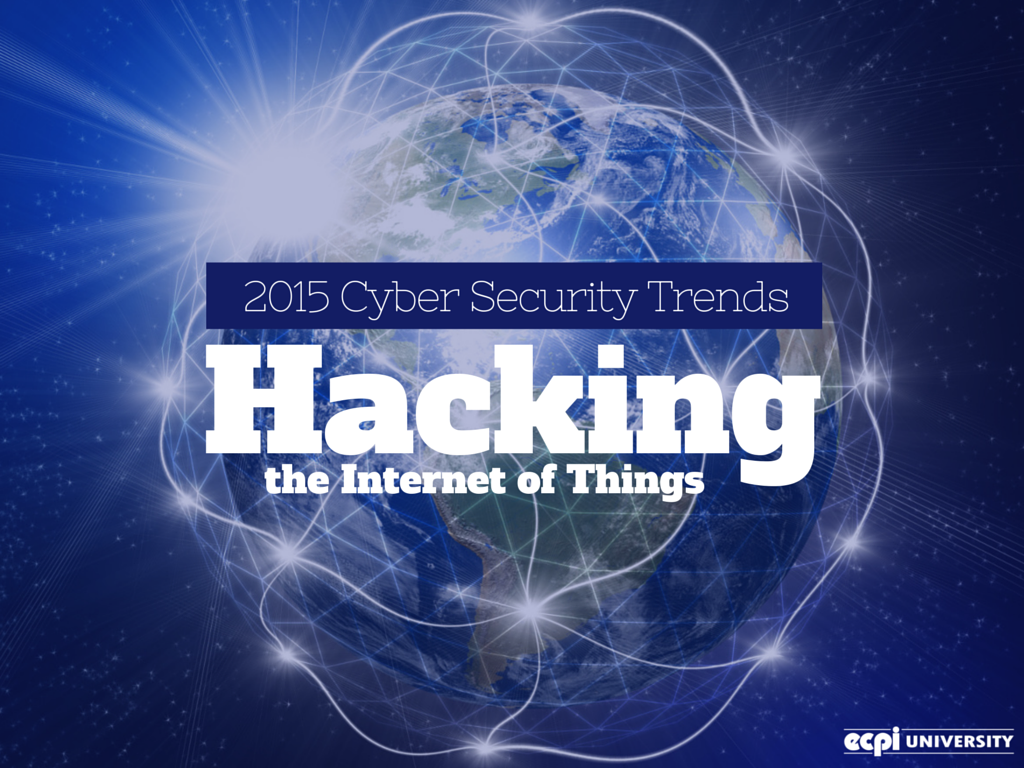 Once upon a time, hacking was an activity that was done by mischievous, yet relatively harmless amateurs, who hacked into sites to see what they could see and maybe cause a little mayhem.
Once upon a time, hacking was an activity that was done by mischievous, yet relatively harmless amateurs, who hacked into sites to see what they could see and maybe cause a little mayhem.
But those days are long gone. Today, hacking is done by professionals who possess skills and tools far in excess of the amateurs of the past, and they usually work for serious organizations, whether they are terrorist groups, foreign intelligence organizations, for-hire eastern European firms or organized crime. Today's hackers are well-trained, well-funded, and are here to stay.
Hacking the Internet of Things
After so many high-profile hacks of large companies, it would seem that most companies would fortify their networks to reduce such breaches. And yet, not only do those headlines keep coming as more and more attacks continue to be uncovered, but the data suggests that this trend will continue.
The Data Breach Investigations Report is an annual report released by the Verizon security organization, and it paints a sobering picture of the state of information security in corporate America. According to their research, the average time for a hacker to compromise a given system ranges from days on the long end, to minutes on the short end - and most successful breaches occur within a few hours at most. The average time to detect that breach, on the other hand, ranges from days to months - with most detections occurring several weeks after the incident occurred.
And Symantec, in its 2015 Internet Security Threat Report, states that over 317 million new pieces of malware were created in 2014 alone. That's over 868,000 new pieces of malware a day.
With the advent of the Internet of Things, or the massive network of connected devices that are controlled via the internet, such as smart appliances and home environmental control systems, the opportunity and avenues for attack are even wider. According to a recent study, over 70 percent of such devices were found to be vulnerable to attack, and already news reports featuring Denial-of-Service attacks launched using such compromised devices are already starting to appear.
Is the Current Outlook Really So Bleak?
All of this seems pretty intimidating at first, to be sure. But the reality is that progress is being made, while there is still a great deal of room for improvement. Vendors are releasing new tools every day, and the means to detect both vulnerabilities and incidents are getting more robust all the time. The reality is this: Information security is catching up to the bad guys, but the bad guys are getting even smarter, and this game will likely continue for years to come.
With that in mind, why are organizations having so much trouble keeping up with the bad guys? One of the key issues cited by most companies is the extremely tight job market for network security professionals. Security is a very hot market right now, with just as many jobs in the public sector as private. With so much on the line, no organization can afford to be without a security team, and security professionals are in high demand as a result.
Career Prospects for Security Professionals
There are also a number of career paths that a network security or information security professional can take. Many government agencies and law enforcement organizations are actively hiring information security professionals for roles involved with both law enforcement and cyber warfare.
Likewise, most corporate employers are actively looking to increase their security teams, including financial, healthcare, and critical-infrastructure providers. And they're not alone - most companies, across industries and locations, are now realizing that security is everyone's concern, not just the big corporations.
Because of this, the job prospects for network security administrators look quite promising, with a median annual salary of $86,170 and an anticipated growth rate of 37%, according to the Bureau of Labor Statistics. This pace is expected to continue for the foreseeable future, and the market for information security professionals is expected to be very strong until, at least, the year 2022.
Network Security at ECPI University
If you’re ready to join the fight against hackers, consider getting into the Network Security field. At ECPI University, you can earn a Bachelor of Science degree in Computer and Information Science with a concentration in Network Security in as little as 2.5 years through the University’s year-round program. It could be the Best Decision You Ever Make!
DISCLAIMER – ECPI University makes no claim, warranty or guarantee as to actual employability or earning potential to current, past or future students or graduates of any educational program we offer. The ECPI University website is published for informational purposes only. Every effort is made to ensure the accuracy of information contained on the ECPI.edu domain; however, no warranty of accuracy is made. No contractual rights, either expressed or implied, are created by its content.
For more information about ECPI University or any of our programs click here: http://www.ecpi.edu/ or http://ow.ly/Ca1ya.



